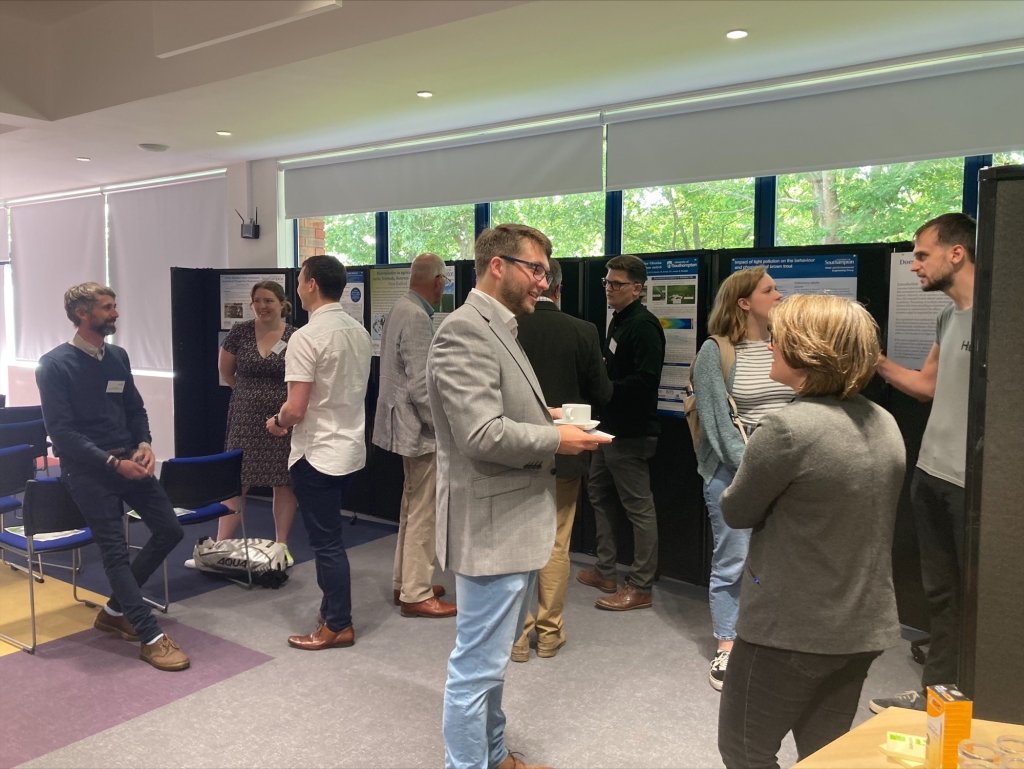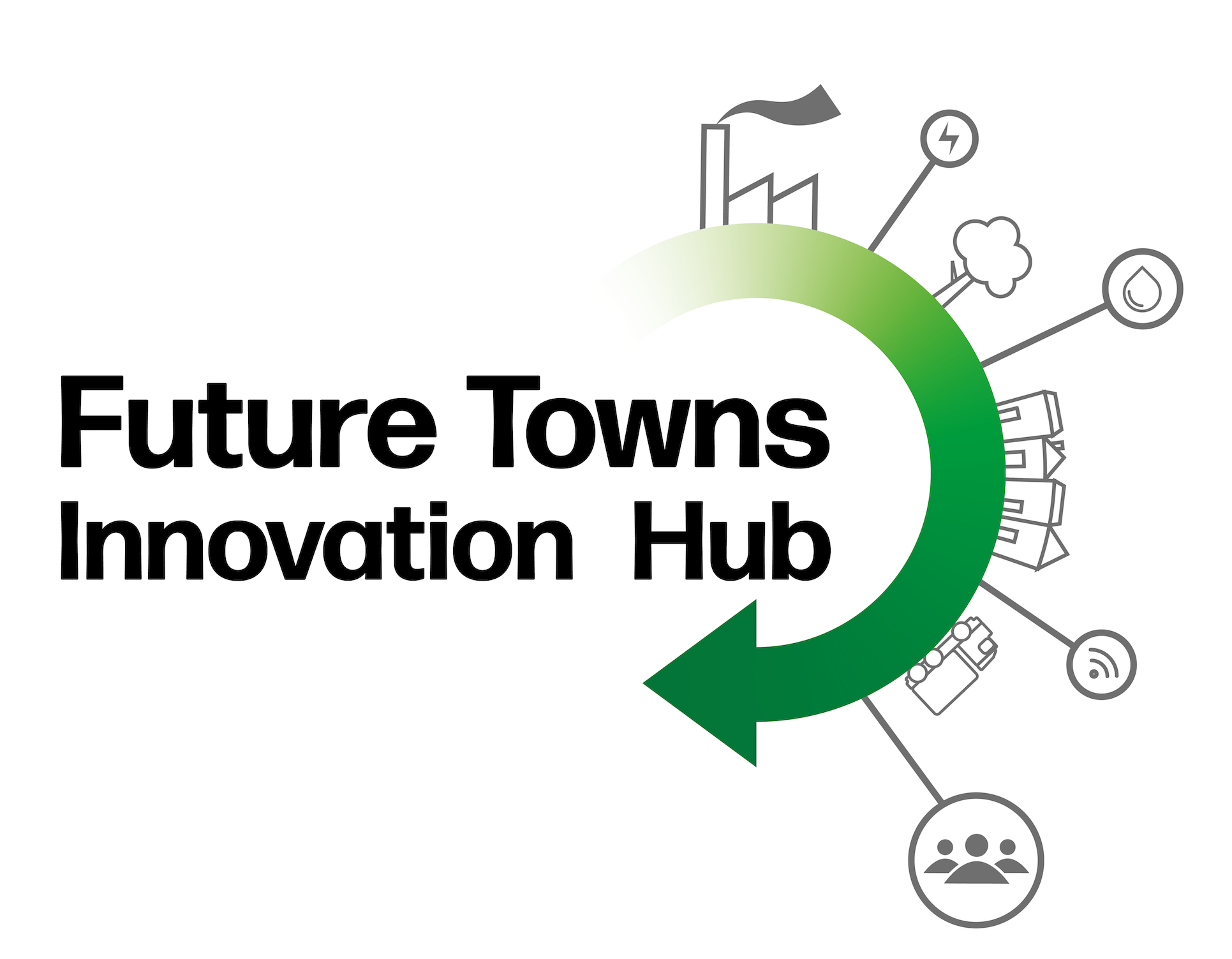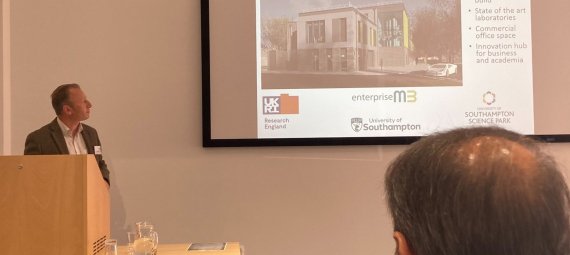Sustainable management of water resources and the aquatic environment in our future towns
29th June 2022 – The Axis Centre, University of Southampton Science Park
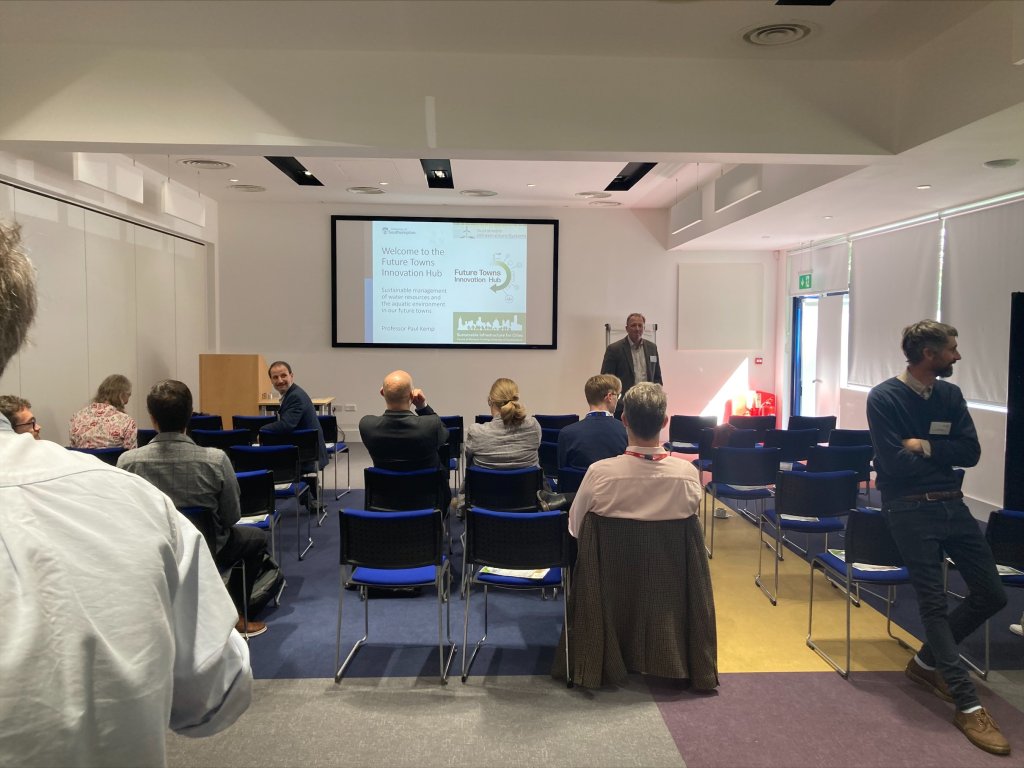
Future towns are challenged by multiple factors, including population growth and climate change, that threaten the environment and ecosystem services that sustains us. The citizens of our towns are concerned about water security, flooding, health of waterways, affordability of services, climate change, and the environment. Future water and environmental management require a step-change from the “business as usual” strategy currently adopted to one that is more sustainable in the long term in face of the threats described.
The aim of this networking event is to facilitate relationship building between participants from industry, business and enterprise, academia and non-government organisations interested in solving the challenges associated with water and waste management and environmental protection of aquatic environments in our urban centres. The session includes “speed presentations” and interactive networking activities to provide time and space for participants to meet one another, generate ideas, and initiate the construction of collaborative relationships.
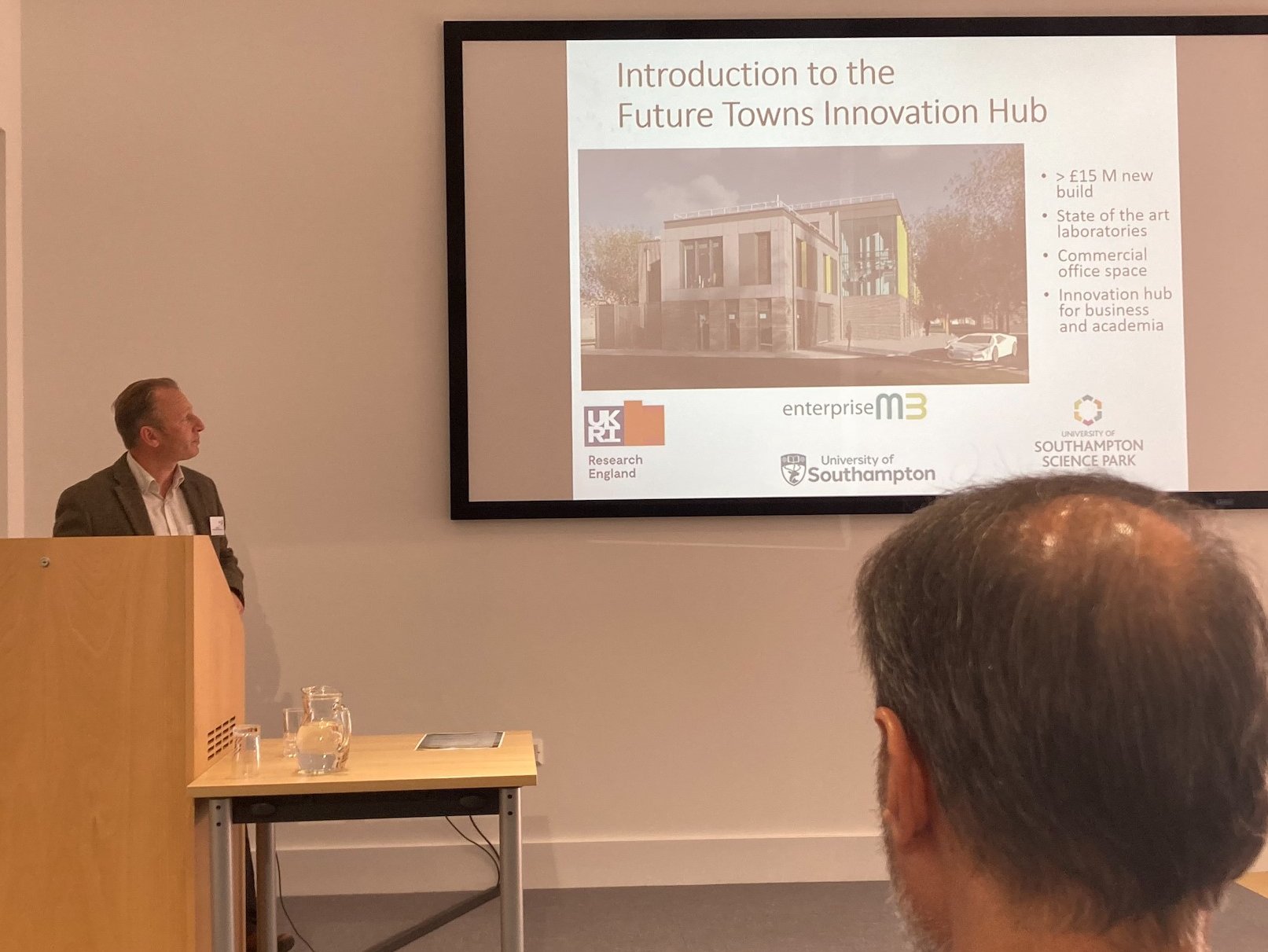
10.00 Welcome – Paul Kemp, Director of the Future Towns Innovation Hub
10.10 Speed Presentation 1 – Yannis Ieropoulos, University of Southampton,
“Self-sustainable dwellings for future towns” – bioenergy and wastewater process engineering, focussing on novel on-site treatment solutions, at household and community levels that can make our homes and towns smarter.
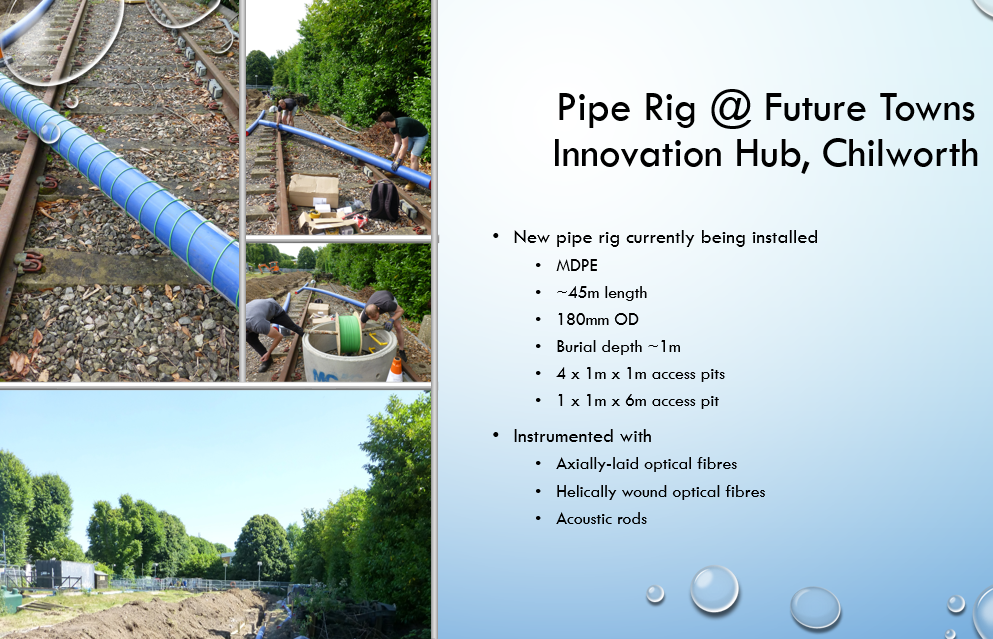
10.20 Speed Presentation 2 – Jen Muggleton, University of Southampton,
“Pipeline Monitoring and leak detection using Acoustics and Vibration” – Experience of research in support of the water industry through the UKWIR ‘Zero Leakage 2050’ initiative.
10.30 Speed Presentation 3 – Paul Ramshaw, Test Valley Borough Council,
“The 3 R’s – Revealing the River Anton as part of Andover Regeneration” – An overview of the Andover Town Centre Masterplan with particular focus of urban river restoration of the Anton.
11.30 Speed Presentation 4 – Andrew Blincow, Wessex Rivers Trust,
“Healthy rivers for wildlife and people” – A review of the processes, challenges and outcomes of Hampshire chalk stream restoration projects using the River Anton as a case study.
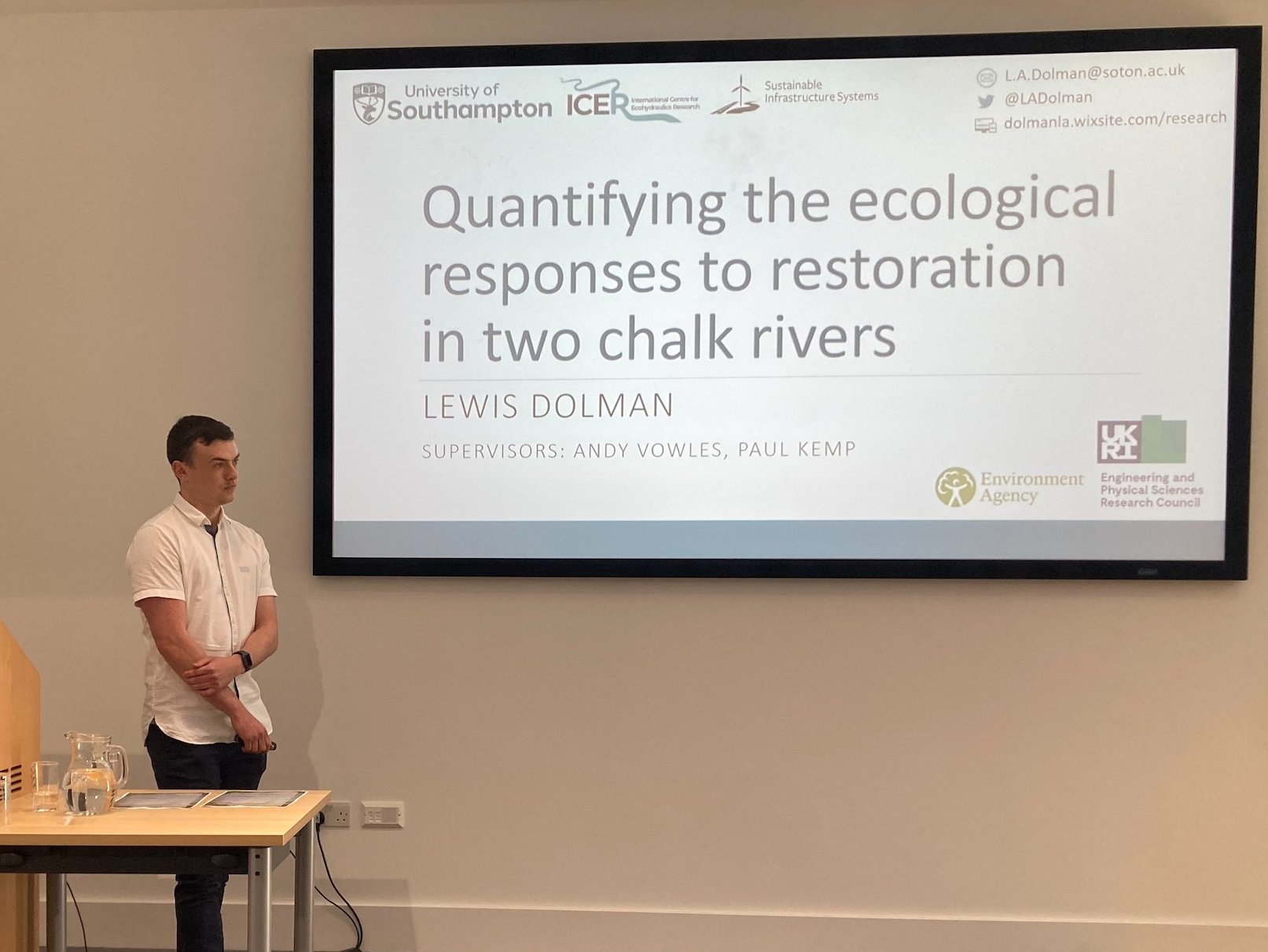
11.40 Speed Presentation 5 – Lewis Dolman, University of Southampton,
“Quantifying the ecological responses to restoration in two chalk rivers” – Results of a three-year monitoring study of restoration on two chalk rivers, the Rivers Test and Itchen.
11.50 Speed Presentation 6 – Robert Wellard, The Piscatorial Society,
“Stocked to Wild: The development of a sustainable wild chalk stream fishery in a modern context” – Focusing on the challenges of restoring chalk streams as more environmentally sustainable and economically viable fisheries, using the Anton as an example.
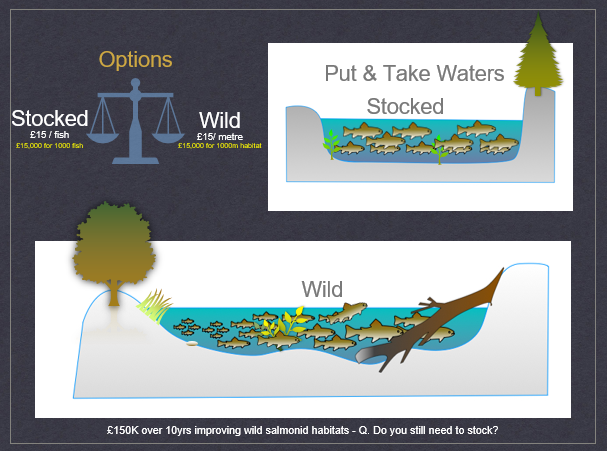
12.40 Speed Presentation 7 – Clive Whilde, Savia Consulting,
“Problem Pumps and Systems in the Field” – Describing rotating equipment problems encountered in the field in a variety of industries and locations and their resolution.
12.50 Speed Presentation 8 – Andrew Vowles, University of Southampton,
“Understanding the impacts of urban lighting on freshwater fish” – An investigation into the impact of urban lighting, considered one of the most pervasive forms of environmental alteration, on rivers co-located with our towns.
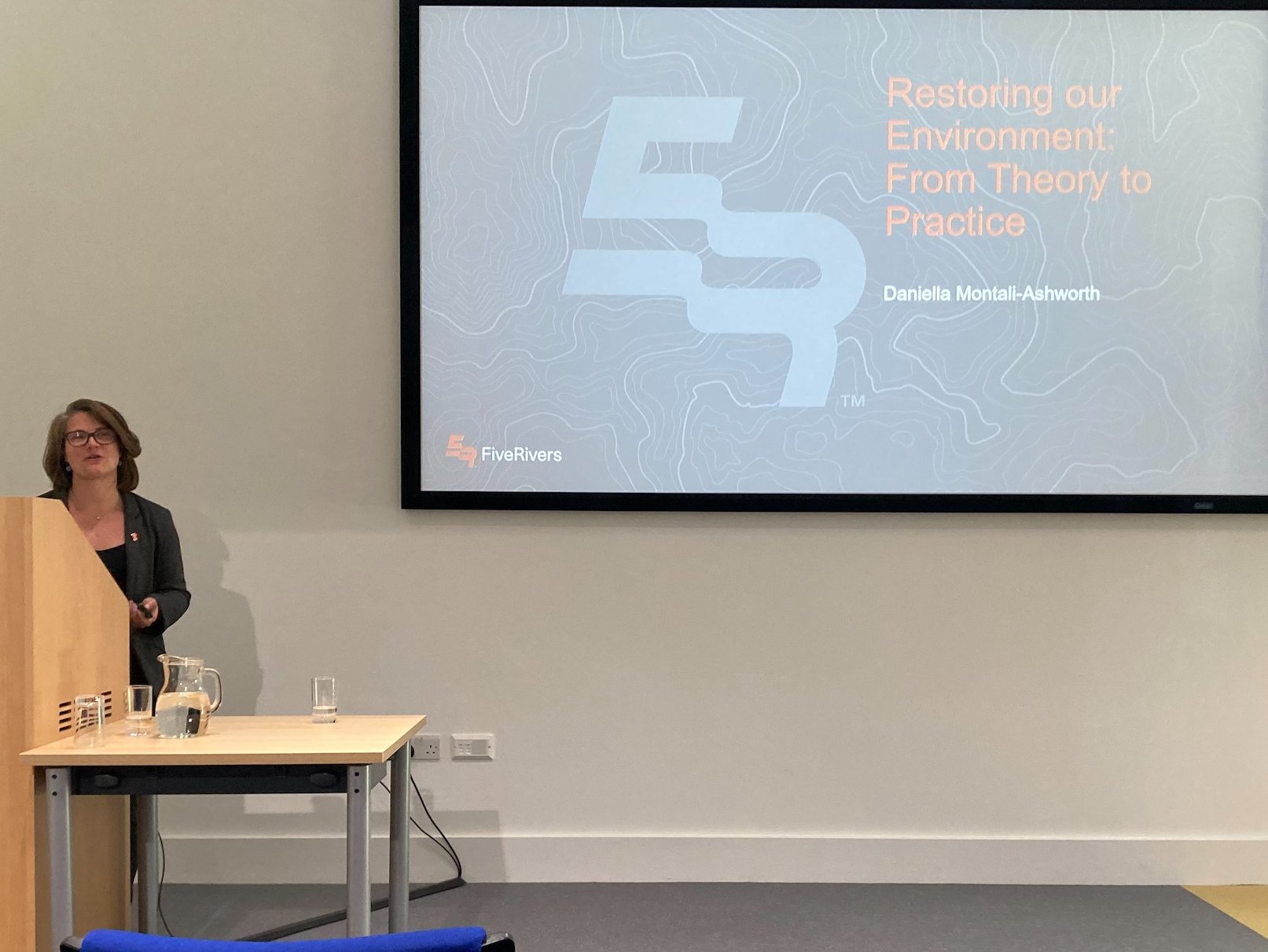
13.00 Speed Presentation 9 – Daniella Montali-Ashworth, FiveRivers,
“Restoring our Environment: From Theory to Practice” – Focusing on different aspects of river habitat restoration, we will follow the journey from fish passage design to delivery of multiple schemes to improve peatland, rivers and wetlands.
Networking and poster sessions were held throughout this event to allow delegates to make connections and discuss possible collaborations.
